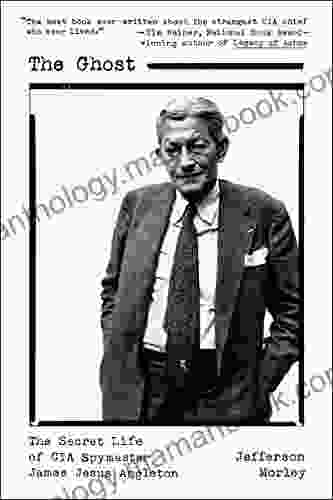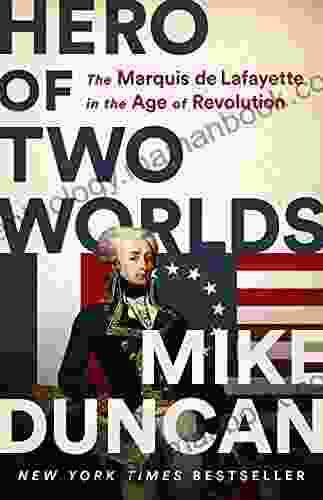The Secret Life of CIA Spymaster James Jesus Angleton: A Deep Dive into the World of Counterintelligence

In the annals of the CIA, few figures loom as large and enigmatic as James Jesus Angleton. As the agency's chief of counterintelligence from 1954 to 1975, Angleton led the relentless hunt for Soviet spies within the CIA and beyond. His uncompromising pursuit of counterintelligence became a defining feature of the Cold War era, shaping the CIA's approach to espionage and leaving a lasting legacy on the intelligence community. 4.4 out of 5 Angleton's tenure as CIA counterintelligence chief was marked by both remarkable successes and controversial failures. He played a pivotal role in uncovering Soviet spy rings, including the notorious "Cambridge Five" ring that had infiltrated the British intelligence establishment. However, his obsessive search for moles within the CIA also led to a climate of suspicion and mistrust, damaging the morale and effectiveness of the agency. This article delves into the life and legacy of James Jesus Angleton, exploring his pivotal role in shaping the CIA's counterintelligence strategy and the enduring mysteries that surround his tenure. Angleton was born in Boise, Idaho, in 1917. His father was a Greek immigrant who worked as a sheepherder, and his mother was a devout Catholic. Angleton attended Yale University, where he studied history and literature. After graduating, he worked as a journalist and editor before joining the CIA in 1943. During World War II, Angleton served in the Office of Strategic Services (OSS),the precursor to the CIA. He was assigned to the counterintelligence branch, where he played a key role in the development of the agency's counterespionage program. After the war, Angleton was appointed chief of counterintelligence for the CIA. In this role, he was responsible for protecting the agency from Soviet espionage and identifying and neutralizing Soviet agents within the United States. Angleton's counterintelligence strategy was based on the belief that the KGB had penetrated the CIA at the highest levels. He was convinced that there were "moles" within the agency who were leaking secrets to the Soviets. This belief led him to initiate a series of investigations that targeted CIA employees and their families. One of Angleton's most significant achievements was his role in uncovering the "Cambridge Five" spy ring. This group of British intelligence officers had been recruited by the KGB during the 1930s and had risen to high positions within the British government. Angleton's investigation of the Cambridge Five led to the arrest and conviction of several of its members, including Kim Philby and Donald Maclean. The Cambridge Five case had a profound impact on the CIA. It demonstrated the vulnerability of Western intelligence agencies to Soviet espionage and led to a heightened awareness of the threat of counterintelligence. During the Cuban Missile Crisis in 1962, Angleton played a key role in collecting and analyzing intelligence on the Soviet nuclear buildup in Cuba. His counterintelligence team helped to identify Soviet agents in the United States who were involved in the operation, and his analysis of Soviet intentions contributed to the Kennedy administration's decision to blockade Cuba. The Cuban Missile Crisis was a major victory for Angleton and the CIA. It demonstrated the agency's ability to gather and analyze intelligence in a crisis situation and helped to strengthen the CIA's position within the U.S. government. In the late 1960s and early 1970s, Angleton's counterintelligence investigations became increasingly controversial. He began to target CIA employees who were perceived as being disloyal or sympathetic to the anti-war movement. His investigations also extended to the Nixon White House, where he suspected that there were Soviet agents. Angleton's investigations eventually led to the Watergate scandal, which led to the resignation of President Richard Nixon. Angleton was implicated in the Watergate cover-up, and he was forced to resign from the CIA in 1975. James Jesus Angleton remains a controversial figure in the history of the CIA. He is credited with uncovering Soviet spy rings and contributing to the CIA's success during the Cold War. However, his obsessive search for moles within the CIA also damaged the morale and effectiveness of the agency. Angleton's legacy is complex and multifaceted. He was a brilliant and dedicated intelligence officer who made significant contributions to the CIA's counterintelligence program. However, his paranoid personality and controversial methods also left a dark stain on the agency's history. James Jesus Angleton was a complex and enigmatic figure who played a pivotal role in shaping the CIA's counterintelligence strategy during the Cold War. His successes and failures continue to be debated by historians and intelligence experts alike. Angleton's legacy is a reminder of the challenges and complexities of counterintelligence work, and the dangers of paranoia and suspicion in the pursuit of national security.Language : English File size : 16943 KB Text-to-Speech : Enabled Screen Reader : Supported Enhanced typesetting : Enabled X-Ray : Enabled Word Wise : Enabled Print length : 325 pages Early Life and Career
Cold War Counterespionage
The "Cambridge Five"
The Cuban Missile Crisis
The Vietnam War and Watergate
Legacy
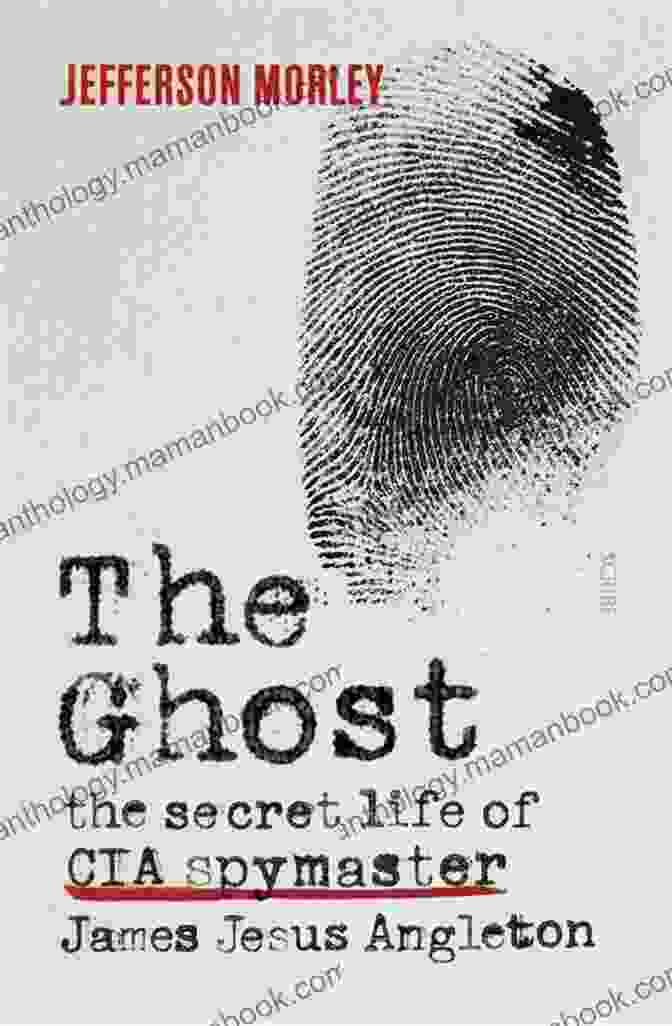
4.4 out of 5
| Language | : | English |
| File size | : | 16943 KB |
| Text-to-Speech | : | Enabled |
| Screen Reader | : | Supported |
| Enhanced typesetting | : | Enabled |
| X-Ray | : | Enabled |
| Word Wise | : | Enabled |
| Print length | : | 325 pages |
Do you want to contribute by writing guest posts on this blog?
Please contact us and send us a resume of previous articles that you have written.
 Top Book
Top Book Novel
Novel Fiction
Fiction Nonfiction
Nonfiction Literature
Literature Paperback
Paperback Hardcover
Hardcover E-book
E-book Audiobook
Audiobook Bestseller
Bestseller Classic
Classic Mystery
Mystery Thriller
Thriller Romance
Romance Fantasy
Fantasy Science Fiction
Science Fiction Biography
Biography Memoir
Memoir Autobiography
Autobiography Poetry
Poetry Drama
Drama Historical Fiction
Historical Fiction Self-help
Self-help Young Adult
Young Adult Childrens Books
Childrens Books Graphic Novel
Graphic Novel Anthology
Anthology Series
Series Encyclopedia
Encyclopedia Reference
Reference Guidebook
Guidebook Textbook
Textbook Workbook
Workbook Journal
Journal Diary
Diary Manuscript
Manuscript Folio
Folio Pulp Fiction
Pulp Fiction Short Stories
Short Stories Fairy Tales
Fairy Tales Fables
Fables Mythology
Mythology Philosophy
Philosophy Religion
Religion Spirituality
Spirituality Essays
Essays Critique
Critique Commentary
Commentary Glossary
Glossary Bibliography
Bibliography Index
Index Table of Contents
Table of Contents Preface
Preface Introduction
Introduction Foreword
Foreword Afterword
Afterword Appendices
Appendices Annotations
Annotations Footnotes
Footnotes Epilogue
Epilogue Prologue
Prologue Rohan Bhardwaj
Rohan Bhardwaj Sergei Guriev
Sergei Guriev Allen Lyne
Allen Lyne Carl Sagan
Carl Sagan Len Unsworth
Len Unsworth M Zachary Sherman
M Zachary Sherman Beth Macy
Beth Macy Jean Marie Gandois
Jean Marie Gandois Skottie Young
Skottie Young Jason Pinter
Jason Pinter David Mann
David Mann David Solmonson
David Solmonson Frederick Lewis Allen
Frederick Lewis Allen Wayne Luckmann
Wayne Luckmann Pere Gimferrer
Pere Gimferrer Lena Simmons
Lena Simmons Darlene P Winston
Darlene P Winston Robert H Cataliotti
Robert H Cataliotti Thomas Sowell
Thomas Sowell Donna Maher
Donna Maher
Light bulbAdvertise smarter! Our strategic ad space ensures maximum exposure. Reserve your spot today!
 Vladimir NabokovFollow ·6k
Vladimir NabokovFollow ·6k Ezekiel CoxFollow ·5.4k
Ezekiel CoxFollow ·5.4k Hugo CoxFollow ·2.4k
Hugo CoxFollow ·2.4k Jarrett BlairFollow ·14.3k
Jarrett BlairFollow ·14.3k Donovan CarterFollow ·10.8k
Donovan CarterFollow ·10.8k Langston HughesFollow ·12.9k
Langston HughesFollow ·12.9k David Foster WallaceFollow ·5.7k
David Foster WallaceFollow ·5.7k Elmer PowellFollow ·13.2k
Elmer PowellFollow ·13.2k

 Vernon Blair
Vernon BlairThe Woman I Met in My Dream: An Unforgettable Night of...
As the veil of night...

 Carlos Fuentes
Carlos FuentesThe Ultimate Guide to Healthy Eating for Toddlers: Meal...
As a parent of a...
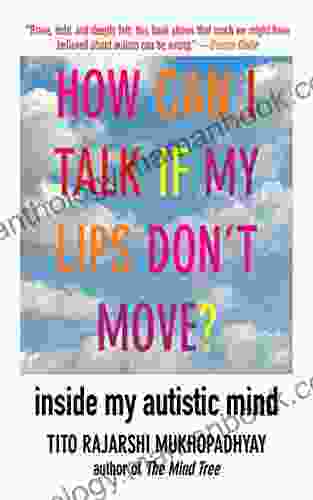
 Peter Carter
Peter CarterInside My Autistic Mind: A Journey of Self-Discovery and...
Autism spectrum disorder (ASD) is a...

 Isaac Asimov
Isaac AsimovA Journey Through Jane Austen's Literary Masterpieces:...
Jane Austen, the renowned English...
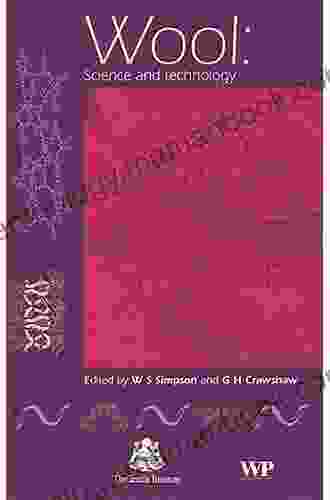
 Hank Mitchell
Hank MitchellAdvancements in Textiles: Science and Technology by...
The textile...

 Troy Simmons
Troy SimmonsRecovery Road: An Odyssey of Hope and Redemption by...
Recovery Road is a...
4.4 out of 5
| Language | : | English |
| File size | : | 16943 KB |
| Text-to-Speech | : | Enabled |
| Screen Reader | : | Supported |
| Enhanced typesetting | : | Enabled |
| X-Ray | : | Enabled |
| Word Wise | : | Enabled |
| Print length | : | 325 pages |


